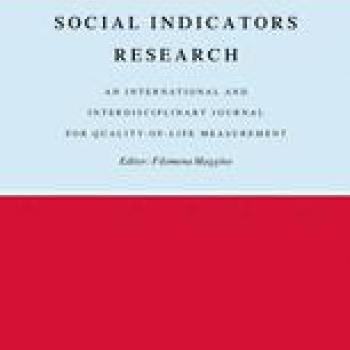Publication Information

"Well-being" is a key concept in the study of children's lives over time, given its potential to link the objective, subjective, and inter-subjective dimensions of their experiences in ways that are holistic, contextualized and longitudinal. For this reason well-being is one of the core concepts used by Young Lives, a 15-year project (2000?2015) that follows the lives of 12,000 children growing up in the context of poverty in Ethiopia, Peru, Andhra Pradesh (India) and Vietnam (see http://www.younglives.org.uk).
This paper examines a selection of methods being used by Young Lives to capture aspects of child well-being in the context of a range of children's life experiences related to poverty, specific risks and protective processes. It draws on a review of the literature on child-focused methods and on recent experiences piloting three core qualitative methods in the four study countries. The paper reports the development of a methodology that is child-centred, but also acknowledges that every child is embedded within a network of social and economic relationships.
Keywords: Children, Youth, Well-being, Qualitative methods, Participatory approach, Young Lives
The final published version of the article is available here.

"Well-being" is a key concept in the study of children's lives over time, given its potential to link the objective, subjective, and inter-subjective dimensions of their experiences in ways that are holistic, contextualized and longitudinal. For this reason well-being is one of the core concepts used by Young Lives, a 15-year project (2000?2015) that follows the lives of 12,000 children growing up in the context of poverty in Ethiopia, Peru, Andhra Pradesh (India) and Vietnam (see http://www.younglives.org.uk).
This paper examines a selection of methods being used by Young Lives to capture aspects of child well-being in the context of a range of children's life experiences related to poverty, specific risks and protective processes. It draws on a review of the literature on child-focused methods and on recent experiences piloting three core qualitative methods in the four study countries. The paper reports the development of a methodology that is child-centred, but also acknowledges that every child is embedded within a network of social and economic relationships.
Keywords: Children, Youth, Well-being, Qualitative methods, Participatory approach, Young Lives
The final published version of the article is available here.

